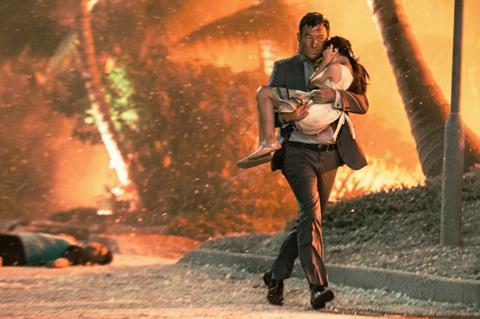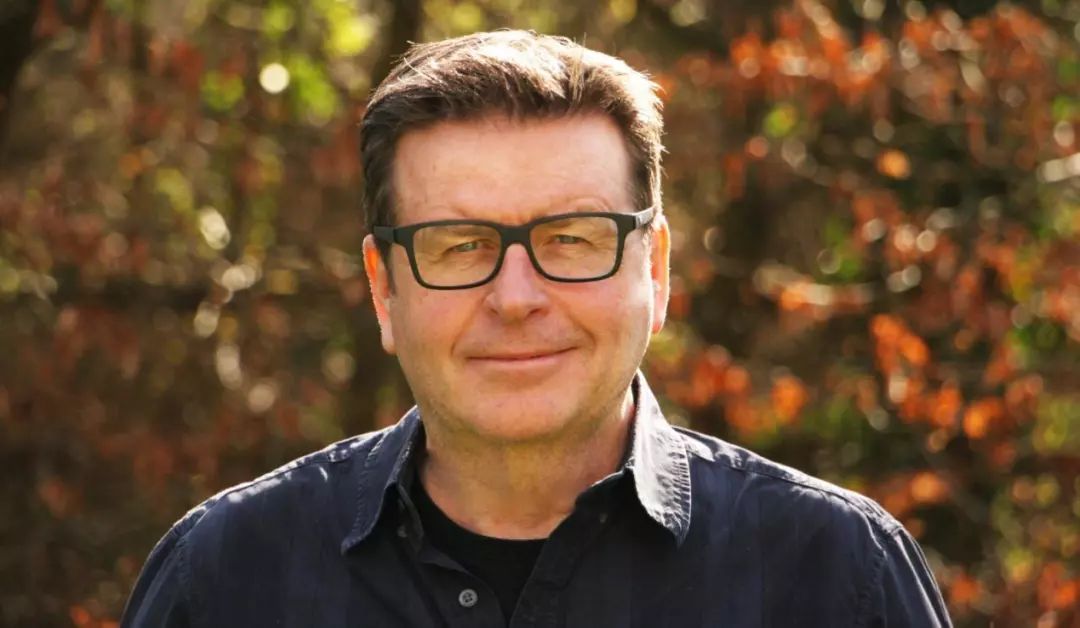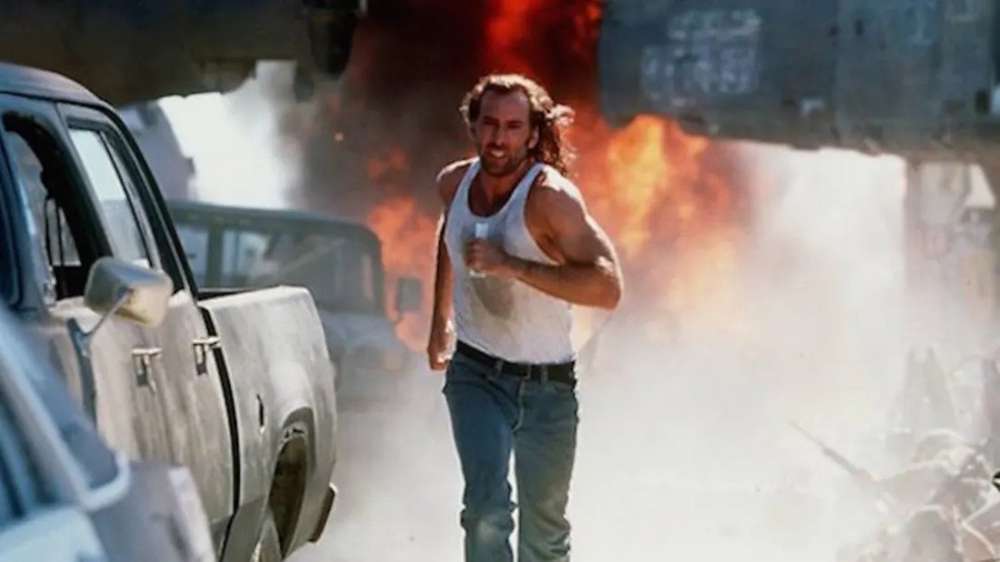Simon West

Jason Isaacs, one of the stars of Skyfire.
No one is more accustomed to the big budget blockbuster than Simon West. The British director has helmed a number of huge action flicks, including 1997’s Con Air, 2001’s Lara Croft: Tomb Raider, and 2012’s The Expendables 2.
These types of films are of course expensive to make, but that wasn’t a real concern for West, as he’s the only live action director to have their first three films all gross $100 million dollars at the US box office.
But with filmmaking in Hollywood becoming more and more expensive, filmmakers are exploring other avenues of given their films that blockbuster feel. For example, for his latest feature, West chose to shoot his film Skyfire in Malaysia. So what was it like shooting a film out of the Hollywood system? “Well it’s not really outside of Hollywood,” begins West, “It’s a kind of Hollywood film, it’s just these days it’s such an international business that producers and financiers come from all over the world and half the films you see look like American films but were financed out of England, or Europe or China”.
Certainly the film has a definite global flavour, as its diverse cast and crew illustrate. “This one was very international, there were Chinese producers and financiers, and then 17 different nationalities on the crew, and we ended up in Malaysia because it offered the best locations, like the jungle, the islands, and a very good Pinewood Studios there. So you recruit your crew fairly local – Australia and New Zealand are very close, so you get half your crew from there, then some Chinese, and Malaysians as they’re local, but the common language on set was English”.

British film director, Simon West.
That may well have been the case for the English director, but with the film’s main language not being English, it had its fair share of challenges. “Because the cast were bilingual, I would shoot a scene, either first in English and then in Chinese, and then swap languages and do the scene again, which was crazy for the actors”.
That’s not to say that he didn’t give directing in Chinese the occasional try. “It’s the hardest language in the world” offers West, “but you pick up things”. “Often I’m directing over a microphone, because they’re in some restricted environment, like they’re inside a car on a rig that’s flipping over, so I could talk to them through a microphone, and they would love it when I tried to speak to them in Chinese. Because they all have to do the Star Trek 123 fall to the left or right, so I would say it in Chinese and they would crack up laughing”.
But that’s not to say that the language barrier was the only thing to overcome. As the film is produced through various independent financiers and producers, a Hollywood studio wasn’t involved. “There’s some good and some bad” admits West, to working outside of the Hollywood studio system. “You’re much more left on your own to do what you want, but on the other hand, you don’t have that huge machine that can back you up. You’re supervised, which can be good, and can be bad; sometimes you want to be supervised, so that you can get that support, say when a typhoon comes and blows your set away, you just want to make a call and say “ can you send us a new set?”.
West has some experience in this, as that’s exactly what happened to him whilst shooting Con Air. “We filmed the whole of the Las Vegas strip in miniature, in an airport; the buildings were all like 10 feet tall with little radio controlled cars driving around, and miniature neon signs, a beautiful set with a big 25 foot plane on wires coming down. A freak storm hit LA and blew the whole set away. That would have been a major problem if you were an independent film, but with a studio they just go “OK, we’ll build it again.” Which they did.
Luckily for him, things went a lot smoother on this shoot, which is quite impressive when you consider how many things could have gone wrong. West may not have had quite the same support you get from having a major Hollywood studio attached, but it didn’t prevent him delivering an entertaining disaster film. Not that the director sees it that way, especially when you consider that he’s not really a fan of the genre. “I must admit I remember as a kid films like The Towering Inferno and The Poseidon adventure, and I really didn’t like them. They weren’t my kind of thing. He adds “So I didn’t really want to make a disaster film, but it’s kind of a label that gets put on a film of a certain type, and really most action adventure films are a disaster film to some extent”.
Perhaps that’s another reason to film a version for the huge Chinese market, as it seems, much like the director, they’re seemingly not fans of the disaster film either. “When this film was marketed in China it was called a rescue film, because culturally the Chinese would rather focus on everything being all right and everyone getting rescued, and we would rather be scared silly and enjoy the disaster. It’s probably just a marketing thing and they love it as much as anybody else!”.

Nic Cage doing his thing in Con Air.
One noticeable difference with this film from his previous works, is the lack of A-list actors involved. West has directed some of the biggest stars on the planet, including Angelina Jolie, Sly Stallone and Bruce Willis, which must surely prove challenging at times. “I don’t know if it’s 50/50: 50% of the experiences I’ve had have been fantastic, with some of them being some of the loveliest creative people in the world, with the other fifty per cent being a bit of a pain in the neck”.
That said, West appreciates that being one of the world’s biggest stars can have its down sides. “They’re not just actors, they’re movie stars. If you’re a jobbing actor you’re generally good at what you do, you're skilled and comfortable in your skills, and I find that very easy to work with, but movie stars are a whole different species. They’re under huge pressure; they can’t leave their houses, often they haven’t got there through working their way up through rep, they’ve suddenly had the spotlight shone on them and they suddenly become unbelievably famous around the world. So I can understand that they have a hard time in some ways”.
So by his own mathematical formula, does that mean 50% of the cast of The Expendables 2 were a difficult bunch to work with? “It’s not that scientific!” West offers. “The thing about people like that is they’ve been in it a long time, so they know what they do and what they’re good at, and I know what they’re good at too. I’ve seen them over the years and I know what their strengths are. I also know what the fans want; they don’t want to see Sly, Arnie and Bruce is a small intimate dialogue scene, they want to see them lined up with big guns, blowing stuff up and throwing out wise cracks, so that’s what you go for. I think once you know what the film is, a fun tongue in cheek ride, it’s all good”.
He’s also keen to point out that for many of them, the limelight hasn’t shone on them for quite some time. “I also think that for some of them, they were huge at one point, and then have gone down, so some of them are just happy to be working again, on a big film with a big canvas. So I actually found them very easy because there was a nostalgia about it; they were big in the eighties and nineties, some of them carried through like Sly for instance, but they’re just happy to be there working again. So no trouble at all really”.
There’s one film superstar with whom he’s more than happy to work with, and that’s his Con Air star Nicolas Cage, who West describes as “very intelligent and very hard working”. He then goes on to describe his experience working with Cage on that feature, and how dedicated he was about the role. “He’s very easy to talk to and he wants to do all of the research, for instance on Con Air, we went to a lot of prisons together; it was scary as hell and didn’t always go that well, walking into the yard of the Folsom maximum security prison with a Hollywood movie star!”. He adds “He’s great to work with, I love working with him, he’s got a great sense of humour, he’s so quirky that it could be quite dangerous to be his friend; God knows what you’d get up to experimenting with him in life adventures. I’m not sure I’d want to be his best friend because I don’t think i could handle it, but he’s a really interesting person to work with”.
Although West has devoted a best part of his life to directing in film, he dabbled in directing music videos previous to that, which isn’t unusual for upcoming directors to cut their teeth on. One of his videos in particular however, found a new lease of life on the internet, and now almost has a life of its own. So much so that you could almost say that it haunts him. West explains “I started at the BBC working on BAFTA award-winning productions , that’s where I was trained, then I did music videos freelance, and I thought I did a lot of artistic music videos and of course there’s one music video that’s still around”.
The video in question is none other than Rick Astley’s classic 1987 debut hit ‘Never Gonna Give You Up’. And in West’s mind it was the “most simplistic, banal one I ever did”. “It’s fine,” he adds, “it’s nostalgic”. Of course, thanks to YouTube and the internet, the video has become a global phenomenon known as rickrolling, where it’s used to prank people into clicking misleading links that end up with them watching the now infamous video. And so far to date, over 800 million have done just that. Not that West gets anything from it, “if only I was on some kind of percentage!” he quips.
But 33 years on, his video is still very much in demand, as West explains. “Even yesterday a producer in Hollywood Im working with sent me a link to someone who had taken all the words from the song and found them in the Bible, so it basically rickrolled Jesus!”.
Skyfire is available on Blu-ray and DVD now.